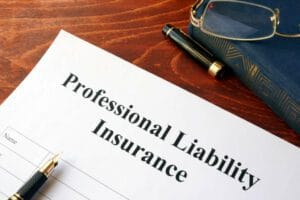
Insurance is an important part of financial planning. It helps to protect your family and assets from unexpected events that could cause serious financial hardship. There are a variety of types of insurance available, each designed to meet different needs and provide varying levels of coverage. Some of the most common types include life insurance, health insurance, auto insurance, homeowners insurance, disability insurance, and liability insurance. Each type offers unique benefits that can help you stay financially secure in the event of an unforeseen incident or accident. Understanding the different types of policies available can help you choose the right one for your needs.

Travel Insurance
Travel insurance is a type of insurance that protects from unexpected events that may occur while traveling. This can include illness, injury, loss or damage of personal belongings, or even flight cancellations and delays. Travel insurance can help protect you from financial losses due to such unforeseen events, ensuring that you can continue your journey without incurring any extra costs.
Travel insurance typically covers medical expenses and emergency medical evacuation, loss of personal items due to theft or damage, trip cancellation or interruption due to health-related events or natural disasters, and third-party liability coverage. It can also provide coverage for additional expenses incurred due to flight delays or cancellations, such as hotel accommodations or additional transportation costs. In some cases, travel insurance can also provide coverage for lost wages resulting from an illness or injury sustained during the trip.
When considering what type of travel insurance policy is right for you, it’s important to look at the level of coverage provided by the policy and the deductible amount. Some policies may offer more comprehensive coverage than others, while some may have a higher deductible amount to keep premiums low. It’s also important to determine whether the policy provides sufficient coverage for your specific travel needs and if any exclusions apply. Taking the time to properly research your options before purchasing a policy can help ensure that you’re getting the most appropriate protection for your travels.

Pet Insurance
Pet insurance is a type of insurance designed to help cover the costs of medical care for cats, dogs, and other pets. This type of insurance can be beneficial in helping to pay for costly veterinary bills that may arise due to unexpected illnesses or injuries. Pet insurance policies typically cover routine vet visits as well as emergency treatments, diagnostic tests, therapeutic procedures, and more.
Most pet insurance policies are broken down into two major categories: accident-only policies which provide financial coverage in the event of an accidental injury or illness, and comprehensive policies which provide coverage against both accidents and illnesses. Depending on the plan chosen, some pet insurance may also include coverage for routine checkups and preventive care such as vaccinations and dental cleanings.
When selecting a pet insurance policy it’s important to have a clear understanding of what the policy covers and any exclusions that might apply. Pet owners should also consider factors such as cost, deductibles, co-insurance requirements, waiting periods, pre-existing conditions clauses, age limits for coverage enrollment, prescription drug coverage limits or restrictions, incident caps (maximum payout per incident), annual maximums (total amount paid out in one year), lifetime maximums (total amount payable over the life of the policy) and geographic restrictions.
Many pet owners find peace of mind in knowing that their furry family members have some level of financial protection against unexpected veterinary bills. With a wide range of options available on the market today there’s sure to be an option perfect for every pet owner’s budget and individual needs. With proper research and consideration taken when choosing a pet insurance policy, you can rest assured knowing your furry friend is covered no matter what comes their way.

Long-term Care Insurance
Long term Care Insurance is a type of insurance policy that provides financial coverage for expenses associated with long-term care. This can include medical and non-medical services necessary to assist individuals with activities of daily living such as bathing, dressing, eating, transferring, and toileting. It can also include skilled nursing care in a facility such as a nursing home or assisted living facility.
Long-term care insurance plans are designed to provide coverage for individuals who need assistance with activities of daily living due to physical or cognitive impairment. These policies typically pay benefits once a person has been clinically determined to require help with certain activities on a long-term basis. Benefits are typically paid directly to the insured individual or their designated caregiver and can be used for any type of qualifying long term care services including at-home health aides, adult day care services, home modifications, and hospice care.
One of the advantages of long term care insurance is that it allows individuals to maintain independence and quality of life while helping protect assets from major costs associated with long-term care services. Policies vary based on the level of coverage provided, waiting periods before benefits begin payments, deductibles or co-payments that may be required, annual maximums that the policy will cover, the number of premiums paid each year, and many other factors.
Individuals should consider their age when purchasing a policy as younger people tend to get better rates and fewer exclusions than older applicants. It’s also important for individuals to understand what type of inflation protection is available in the policy as this can help ensure that benefit amounts keep up with rising costs associated with long-term care services over time.
When evaluating various policies it’s important to understand all exclusions and limitations that may apply so that you have an accurate picture of what expenses will be covered by the plan in case you ever need it. While there is no one size fits all solution when buying long term care insurance it’s important to do your research to make an informed decision regarding which type of coverage is right for you.

Business Interruption Insurance
Business Interruption Insurance is a type of insurance that provides financial compensation for loss of income due to unexpected events that may occur. This type of insurance can help protect businesses from financial losses caused by a variety of potential scenarios. These can include natural disasters such as floods or tornadoes, human-caused disruptions such as fires or riots, and technological failures such as power outages or system failures. Business interruption insurance typically covers the loss of income due to a specified event, the additional costs associated with re-establishing normal business operations, and any related expenses incurred during the process.
Having this type of protection in place can be invaluable to businesses that may be affected by an unforeseen event. When used in conjunction with other types of insurance policies it can provide comprehensive coverage to help keep businesses afloat during times when they are unable to generate revenue due to events beyond their control. In some cases, business interruption insurance can also include civil authority coverage which provides compensation for losses when access to a business is prohibited due to government orders or regulations.
When shopping for the right policy it’s important for businesses to understand exactly what is covered and if there are any exclusions applied based on the type of industry they are in or specific risks associated with their business operations. Businesses should also consider factors such as deductibles, limits on coverage levels and duration, pre-existing conditions clauses, inflation protection clauses, and geographic restrictions before purchasing a policy. It’s also important to review any documentation carefully before signing up so that you understand exactly what your rights and obligations will be under the policy terms.
Choosing the right business interruption policy can be an important part of maintaining financial stability during uncertain times. By taking the time to properly research options before making a decision you can ensure that your company has adequate protection against unforeseen circumstances and have peace of mind knowing your business is secure regardless of what comes it’s the way.

Professional Liability Insurance (E&O)
Professional Liability Insurance, also known as Error & Omissions (E&O) Insurance, is designed to protect businesses from financial losses due to claims of negligence or fault. This type of insurance helps provide coverage for business owners who may be held legally responsible for their services or products or the advice they provide. Professional liability insurance can cover a variety of costs associated with such claims including legal fees, damages awarded by the court, and settlements.
Businesses that may need professional liability insurance include those in the professional services sector such as lawyers, accountants, consultants, architects, engineers, and IT professionals. It can also be beneficial for any company offering specialist advice as part of their services such as real estate agents and financial advisors. While this type of protection is not required by law it is recommended for any business that may face potential claims of negligence or fault regarding its services or products.
Professional liability insurance policies typically cover a wide range of incidents related to the policyholder’s professional activities. This can include acts of negligence or errors occurring while providing professional services, wrongful acts committed by employees in connection with their duties and responsibilities, advertising injury caused due to false advertisements or libelous statements made by third parties about the policyholder’s business operations, copyright infringement resulting from use of materials owned by another party without permission and many other scenarios.
When selecting an E&O policy it’s important to understand exactly what risks are covered by the plan and if any specific exclusions apply to your particular industry or line of work. Other factors to consider when purchasing a policy include features such as coverage limits and deductibles as well as premium payments which may vary depending on the size and scope of your business operations.
It’s also important to make sure you select an insurer that understands your particular industry as they will be better equipped to adapt the plan should your needs change over time. Taking all these factors into consideration before making a decision can help ensure that you choose an appropriate E&O policy that meets both your current needs and future goals while providing ample protection against any potential claims you may face down the road.

Home Warranty Plans
Home Warranty Plans are a type of insurance that provides coverage for repair and replacement costs associated with malfunctioning home appliances and systems. This type of insurance can be beneficial for homeowners as it can help protect them from unexpected and costly repairs. Home warranty plans typically cover repair or replacement costs due to normal wear-and-tear on major home appliances such as refrigerators, washers/dryers, ovens, dishwashers, or HVAC systems and some also offer coverage for other home systems including plumbing, electrical, and pool/spa.
When selecting a home warranty plan it’s important to understand the specifics of the policy you’re considering to ensure adequate coverage. It’s also important to pay close attention to any additional services provided by the policy as these can vary greatly between providers. Some policies may include additional assistance such as providing disposal services for old broken appliances or offering discounts on appliance parts. Other features which may be included in some plans are concierge services which assist with scheduling appointments with local service professionals, pre-screening contractors for quality assurance purposes, access to online resources such as repair advice and maintenance tips, 24/7 customer support lines staffed by knowledgeable representatives or emergency response services.
Before signing up for a plan it’s important to research the provider thoroughly to ensure they have a good reputation within the industry. You should also keep an eye out for any hidden fees or clauses that could limit your coverage during a claim process. Once you’ve reviewed all available options it is important to read through all policy documents carefully before making your decision to make sure that you understand exactly what will and won’t be covered by your plan.
Homeowners who decide that a home warranty plan is right for them can often save hundreds if not thousands of dollars throughout the life of their plan by avoiding costly repairs associated with malfunctioning home appliances and systems due to normal wear-and-tear. With ample research done ahead of time and an understanding of how different plans work homeowners can rest assured knowing that their homes are protected against unexpected expenses should something go wrong down the line.

Flood Insurance
Flood Insurance is a type of insurance that provides financial protection against damage caused by flooding. This type of coverage is necessary for homeowners living in areas prone to flooding and can help ensure that costly repairs and replacement costs are covered in the event of a flood. Flood insurance policies typically cover physical damage to your home and other structures on your property such as garages, fences, and driveways. It can also provide coverage for personal items damaged or destroyed in a flood such as furniture, clothing, and electronics.
When purchasing flood insurance it’s important to understand the difference between “named” perils vs “all-risk” policies. Named peril policies are typically less expensive but only provide coverage for specific events listed on the policy whereas an all-risk policy provides broader protection by covering any event not specifically excluded from the policy language. It’s also important to understand what types of deductibles may be applicable (e.g., percentage or dollar amount) as this affects how much you may need to pay out-of-pocket before your policy starts to cover costs associated with repair or replacement for damages caused by a flood.
In addition to understanding what type of coverage you should purchase it is also important to know how long you have until coverage begins after purchasing a policy. Most standard policies have waiting periods ranging from 30 days up to one year depending on the insurer so it’s important to confirm when your coverage will begin before signing up for a plan. It’s also essential to understand any eligibility requirements imposed by insurers such as limits on elevation levels or restrictions based on prior flooding history at the property location before selecting an appropriate plan that meets your individual needs.
In addition to standard private market plans, homeowners can also consider the government-sponsored National Flood Insurance Program (NFIP) which is designed specifically for properties located in high-risk areas determined by FEMA maps. The NFIP offers two main types of coverage: building property insurance which covers structural components of the building such as walls, foundation, and roof; and personal property insurance which covers items inside the structure such as furniture, appliances, clothing, and electronics). Policies through NFIP are typically available at lower rates than plans offered through private companies however they do not usually offer additional services like home safety inspections or concierge services typically provided through private sector plans.
Conclusion
In conclusion, choosing the right insurance policies is an important part of protecting your business and personal assets against unexpected events. With a variety of potential coverage options available, it’s important to do your research to make an informed decision regarding which type of coverage is right for you. By taking the time to properly evaluate all available options and understanding the specifics of each policy before making a purchase you can ensure that you have adequate protection against any potential risks while also gaining peace of mind knowing that you are fully covered should something go wrong down the line.


